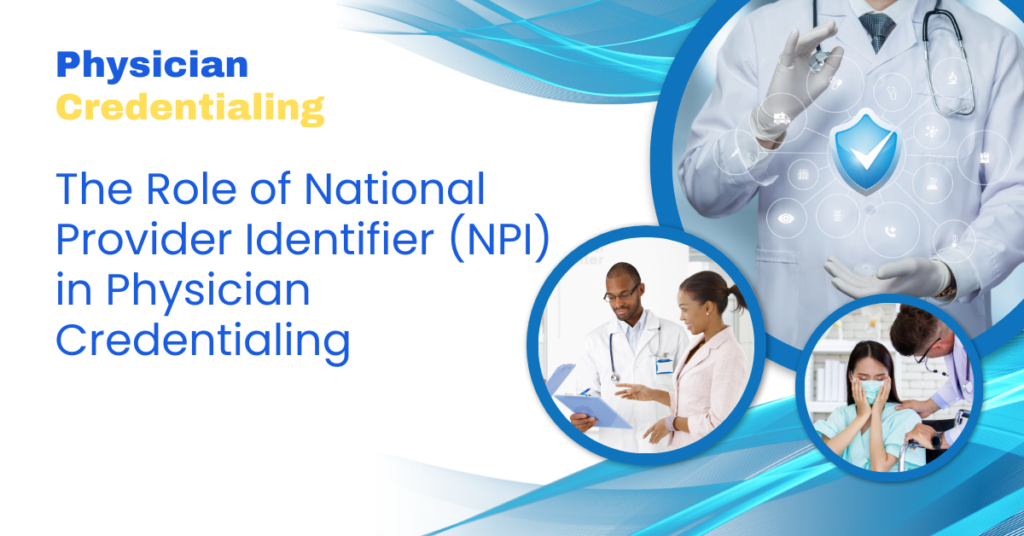In the complex and highly regulated world of healthcare, the National Provider Identifier (NPI) plays a crucial role in ensuring the accuracy of provider information and streamlining the physician credentialing process. This blog post explores the significance of the NPI in healthcare credentialing and why it’s a vital component for healthcare providers and organizations.
Understanding the NPI:
The NPI is a unique 10-digit identification number assigned to healthcare providers, including physicians, nurse practitioners, hospitals, clinics, and other healthcare entities. This standardized identifier was introduced as part of the Health Insurance Portability and Accountability Act (HIPAA) in 1996. Its primary purpose is to simplify and standardize healthcare transactions, making it easier for providers, payers, and government agencies to communicate and process claims.
The Link Between NPI and Credentialing:
-
Provider Identification: The NPI serves as a permanent and unique identifier for healthcare providers. When a healthcare professional or entity undergoes the credentialing process, their NPI is a key element of their identity, ensuring that the right provider is being credentialed.
-
Streamlining the Process: Credentialing involves extensive background checks, verification of qualifications, and confirming licenses and certifications. The NPI allows credentialing organizations to efficiently cross-reference provider information with the National Plan and Provider Enumeration System (NPPES), where NPI information is stored.
-
Ensuring Accuracy: The NPI helps prevent errors and inaccuracies in the credentialing process. It allows for immediate verification of provider information and credentials, reducing the risk of credentialing mistakes that can lead to legal and financial issues.
Benefits of NPI in Credentialing:
-
Efficiency: The NPI streamlines the credentialing process, making it faster and more accurate. This, in turn, allows healthcare providers to start practicing sooner, benefiting both providers and patients.
-
Cost Reduction: By reducing the risk of errors and minimizing administrative burdens, the NPI helps lower the cost of the credentialing process for healthcare organizations.
-
Improved Data Management: With the NPI, provider data can be more easily managed and updated, ensuring that only accurate, up-to-date information is used in credentialing.
-
Compliance with Regulations: Compliance with HIPAA regulations is essential in healthcare. Utilizing the NPI in credentialing helps organizations meet these requirements and protect patient data.
Getting Your NPI:
If you’re a healthcare provider or entity, obtaining an NPI is a straightforward process. You can apply for an NPI online through the NPPES system, which is maintained by the Centers for Medicare & Medicaid Services (CMS). Once you have your NPI, it’s important to keep your information updated to ensure it remains a reliable source of data for credentialing and other healthcare processes.
Conclusion:
In the world of healthcare, precision, accuracy, and efficiency are paramount. The NPI plays a pivotal role in ensuring these qualities during the physician credentialing process. It simplifies provider identification, streamlines credentialing procedures, reduces costs, and ultimately benefits healthcare professionals and the patients they serve. As a healthcare provider or organization, understanding and utilizing the NPI is not just a regulatory requirement but a significant step toward enhancing the quality and accuracy of your services.

